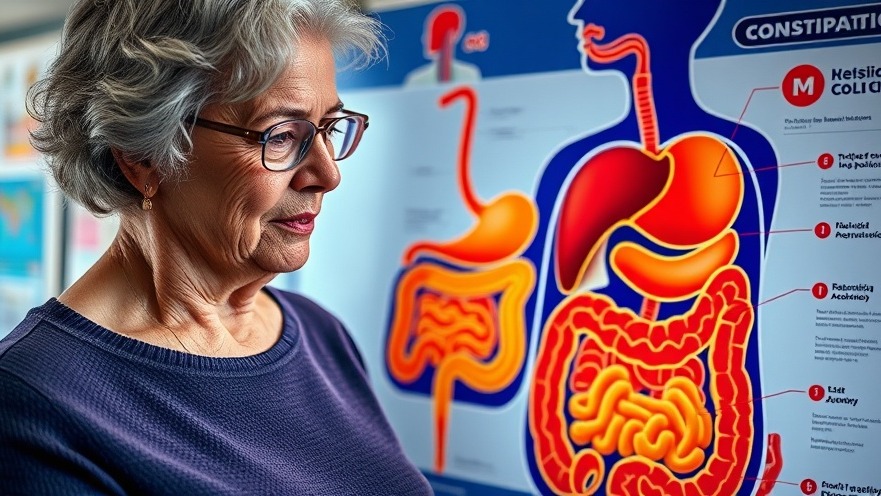
Understanding Constipation: Not Just an Aging Issue
For many seniors, battling constipation is often mistakenly viewed as an unavoidable part of aging. However, the reality is more intricate. Factors such as slowed digestive muscles, medications, and inadequate hydration often contribute significantly to constipation woes in older adults. As our digestive systems age, the contractions that help move food through the intestines weaken by about 30 to 40%. This slows down the process, leaving individuals feeling bloated and uncomfortable. Especially among the 60+ demographic, it's vital to recognize that these changes aren't merely physical; they're indicators of broader health issues at play.
In 'Seniors: Say GOODBYE to Constipation in JUST 1 Day!', the discussion highlights key insights about the challenges of constipation in older adults, prompting us to dive deeper into effective natural solutions.
Dietary Habits: A Double-Edged Sword
Many people believe that increasing fiber intake will magically remedy constipation, but this approach can backfire if not done correctly. For instance, consuming dry fiber without proper hydration can exacerbate the problem, talking about fiber in relation to hydration is crucial. If you have ever felt more bloated after switching to a high-fiber diet without sufficient water, you are not alone. Instead, focus on incorporating fiber-rich foods that also contain moisture—think oatmeal with prunes or baked sweet potatoes, which can aid digestion while providing essential nutrients.
Gentle Strategies to Encourage Regularity
The journey to freedom from constipation doesn't have to be lined with laxatives and discomfort. Here are some common yet surprisingly simple strategies to promote natural digestive health:
Stay Hydrated - Aim to drink at least eight glasses of water daily. Starting your day with a glass of water can get your digestive system moving. Keep a glass handy in each room as a reminder.
Mindful Eating - Avoid the common habit of eating too quickly. Slow down, chew your food properly, and enjoy it. This aids digestion significantly.
Gentle Movement - Incorporating light exercises can stimulate bowel function. Simple seated marches or even standing while watching TV can make a difference.
Bathroom Habits - Creating a routine can also be beneficial. Sitting in the bathroom at the same time each day can help signal your body to go.
Acknowledge Red Flags: Understanding When to Seek Help
While occasional constipation can often be resolved with lifestyle changes, it's important to be aware of when to consult a physician. Red flags include not having a bowel movement in four or more days, blood in the stool, unintentional weight loss, or severe abdominal pain. These symptoms could indicate a more serious issue that requires professional evaluation, ensuring you get the right care without the stigma often associated with bowel health.
Breaking the Cycle of Embarrassment Around Bowel Health
The stigma surrounding bowel health can lead to unnecessary suffering. It’s crucial to recognize that constipated feelings aren't just uncomfortable—they can severely affect social activities and emotional health. Don't let fear of embarrassment govern your social interactions; most people experience digestive issues at some point, especially as they age. Open conversations about healthy bowel movements can not only promote awareness but can also foster community support, encouraging individuals to seek the help they need.
Your Path to Digestive Wellness Starts Now
Ultimately, this isn't just about avoiding the discomfort of constipation—it's about reclaiming one's life. The fight against constipation can feel isolating, but it doesn’t have to be. With knowledge, a supportive community, and a commitment to making small changes in daily routines, seniors can significantly improve their digestive health and overall quality of life. By recognizing and addressing these issues before they escalate, you can pave the way for a healthier, more vigorous lifestyle.
Now that you're armed with these insights and strategies, it’s your turn to take action! Leave a comment below sharing which strategy resonates with you most. Together, let’s work toward a healthier future! And if you found this article helpful, don’t forget to like and subscribe for more health insights!
 Add Row
Add Row  Add
Add 




Write A Comment